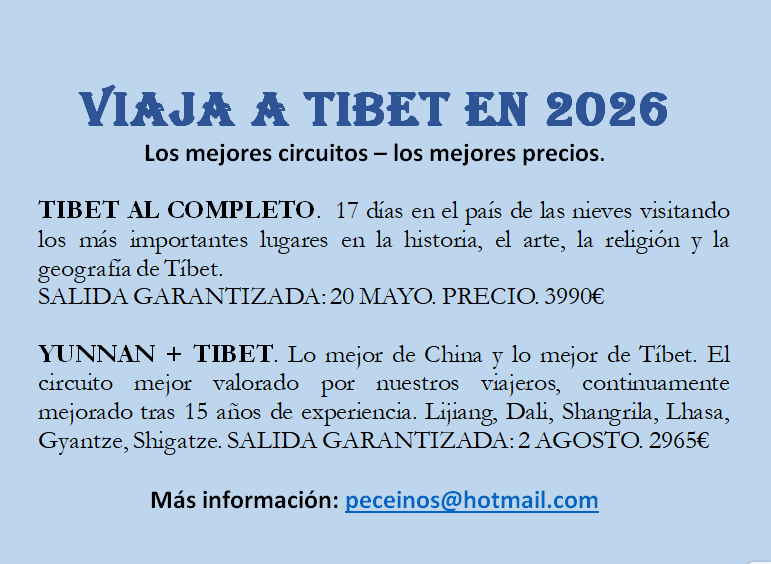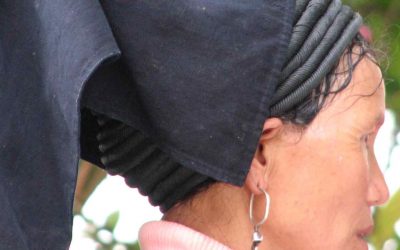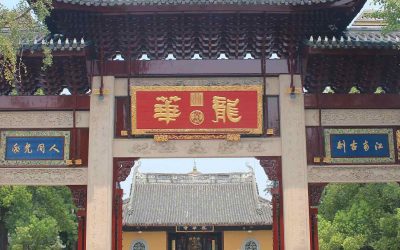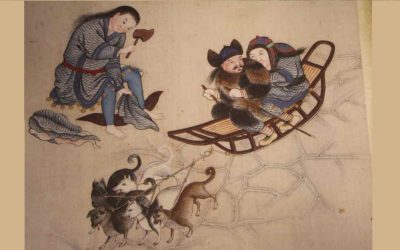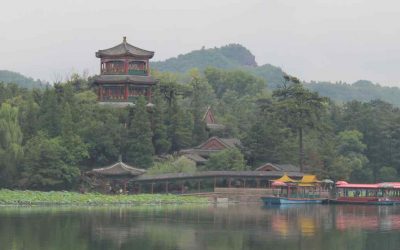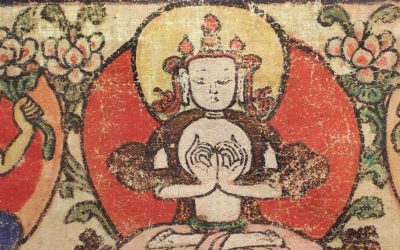Peter Harvey. Buddhism: Teachings, History and Practices. Cambridge University Press. 2013.
(Excerpts from the book. Page 11 and ff.)
In its origin, Buddhism was a Samana-movement. Samanas were wandering ‘renunciant’ thinkers who were somewhat akin to the early Greek philosophers and mystics. The Samanas rejected the Vedic tradition and wandered free of family ties, living by alms, in order to think, debate and investigate. The main Samana groups of Buddha’s time were:
JAINS
Jainism was founded, or at least led in the Buddha’s day, by Vardhamāna the Mahāvīra, or ‘Great Hero’. It teaches that all things, even stones, are alive, each containing a Jīva, or ‘Life-principle’. These are seen as individually distinct, rather like the Western idea of a ‘soul’ but unlike the universal Ātman of the Upanisads, and to be naturally bright, omniscient and blissful. The aim of Jainism is to liberate one’s Jīva from the round of rebirths by freeing it from being weighed down by an encrustation of karma, seen as a kind of subtle matter. The methods of doing so are primarily austerities such as fasting, going unwashed and pulling out the hair, so as to wear out the results of previous karma, and self-restraint, total non-violence to any form of life, and vegetarianism, so as to avoid the generation of new karma. The free-will of the Jīva is emphasized, though even actions such as unintentionally killing an insect are held to generate karma.
AJIVIKAS
Their founder was Makkhali Gosāla (Skt Maskarin Gośāla). Gosāla’s key doctrine was that niyati, or impersonal ‘destiny’, governed all, such that humans had no ability to affect their future lives by their karma: actions were not freely done, but were determined by niyati. Gosāla thus believed in rebirth, but not in the principle of karma as that which regulates the level of a person’s rebirth. The ‘Life-principles’ of living beings are driven by niyati alone through a fixed progression of types of rebirths, from a low form of animal to an advanced human who becomes an Ājīvika ascetic. The Ājīvikas practised rigorous asceticism such as fasting, nakedness and perhaps also disfiguring initiations, and aimed to die by self-starvation (as Vardhamāna in fact did), as a fitting way to end their last rebirth.
MATERIALISTS
The Materialists’ aim was to lead an abstemious, balanced life which enjoyed simple pleasures and the satisfaction of human relationships. They denied any kind of self other than one which could be directly perceived, and held that this was annihilated at death. They therefore denied the idea of rebirth, and also those of karma and niyati. Each act was seen as a spontaneous event without karmic effects, and spiritual progression was not seen as possible.
SKEPTICS
The Skeptics responded to the welter of conflicting theories on religious and philosophical issues, and the consequent arguments, by avoiding commitment to any point of view, so as to preserve peace of mind. They held that knowledge on such matters was impossible, and would not even commit themselves to saying that other people’s views were wrong. The Buddha saw this evasive stance as ‘eelwriggling’, though he shared the wish to step aside from the ‘jungle’ of conflicting views, and avoid dogmatic assertions built on flimsy grounds.
More posts on Chinese culture
Las Mujeres Azules de China de la minoría Yao
Las Mujeres Azules de China de la minoría Yao Mucha gente ha oído hablar de los Hombres Azules del Sahara (los Tuareg), pero muy poca de las Mujeres Azules de China. Y en realidad entre las mujeres de los llamados Landian Yao o Landen yao fuera de China, la...
Descubre el simbolismo oculto del templo budista
Los templos budistas siguen el patrón general de la arquitectura china, lo que hace que por su apariencia externa, uno no sabe que ha llegado a un templo hasta que está ante su puerta, aunque a veces la presencia de un muro protector ante ella ya da una pista, y otras...
No es difícil aprender chino, te contamos por qué
¿Es difícil aprender chino? Esta es una de las preguntas que más veces escucho cada vez que visito España, pues hay tantos dichos en nuestra lengua hablada que apuntan a la dificultad del idioma chino, que a pesar de las décadas de globalización aún sigue siendo...
Cuentos del perro fiel: China, Mongolia, Occidente.
En la cultura china tenemos muchos relatos históricos y folklóricos que enaltecían a los perros, situando al amigo animal por encima de los semejantes. Eso era debido a la fidelidad a su amo, una de las virtudes más apreciadas en la sociedad china. En las leyendas,...
Chengde, un tesoro imperial al norte de Beijing
Chengde es una de las ciudades más interesantes de China. Cuenta con un conjunto monumental único y está rodeada por uno de los más bellos paisajes del norte de China, sin embargo, cada vez es menos visitada. Parece que los viajeros, por muy independientes que viajen,...
Los espectros del suicidio en la China imperial
Básicamente el mundo de los espíritus en China se divide entre los espíritus de la naturaleza, incluyendo a la cabeza de ellos al del cielo y los de otros grandes elementos cósmicos, y los de origen humano, entre los que destacan igualmente los ancestros imperiales,...
More posts on China ethnic groups
Las Mujeres Azules de China de la minoría Yao
Las Mujeres Azules de China de la minoría Yao Mucha gente ha oído hablar de los Hombres Azules del Sahara (los Tuareg), pero muy poca de las Mujeres Azules de China. Y en realidad entre las mujeres de los llamados Landian Yao o Landen yao fuera de China, la...
Descubre el simbolismo oculto del templo budista
Los templos budistas siguen el patrón general de la arquitectura china, lo que hace que por su apariencia externa, uno no sabe que ha llegado a un templo hasta que está ante su puerta, aunque a veces la presencia de un muro protector ante ella ya da una pista, y otras...
No es difícil aprender chino, te contamos por qué
¿Es difícil aprender chino? Esta es una de las preguntas que más veces escucho cada vez que visito España, pues hay tantos dichos en nuestra lengua hablada que apuntan a la dificultad del idioma chino, que a pesar de las décadas de globalización aún sigue siendo...
Cuentos del perro fiel: China, Mongolia, Occidente.
En la cultura china tenemos muchos relatos históricos y folklóricos que enaltecían a los perros, situando al amigo animal por encima de los semejantes. Eso era debido a la fidelidad a su amo, una de las virtudes más apreciadas en la sociedad china. En las leyendas,...
Chengde, un tesoro imperial al norte de Beijing
Chengde es una de las ciudades más interesantes de China. Cuenta con un conjunto monumental único y está rodeada por uno de los más bellos paisajes del norte de China, sin embargo, cada vez es menos visitada. Parece que los viajeros, por muy independientes que viajen,...
Los espectros del suicidio en la China imperial
Básicamente el mundo de los espíritus en China se divide entre los espíritus de la naturaleza, incluyendo a la cabeza de ellos al del cielo y los de otros grandes elementos cósmicos, y los de origen humano, entre los que destacan igualmente los ancestros imperiales,...

